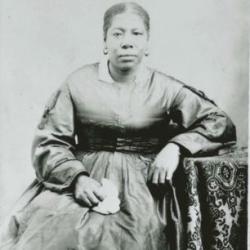Awoken. again.
Can’t breathe.
Claustrophobic.
It’s okay. This will pass.
Deep breaths…deep breaths.
Maybe a TV program will get my mind off of it.
Ugh, I feel like I’m breathing in fire.
My heart is racing.
I hear my pulse in my ears.
Could this be a heart attack? I’m not ready to leave my kids!
Certainly not, I’m so young.
But what if?
It’s the unknown. Physical symptoms that manifest themselves into fear that leeches to your brain and you cannot shake.
Today I am breaking my silence.
Yesterday, I woke up early to head to the hospital where I was hooked up to a machine to make sure my heart was okay. EKGs, stress tests, blood work all come back fine, just like it has before. It has been a month since my attacks began… again. You see, this has happened before, just over a year ago.
They started when my scared husband called paramedics to my house at 2 am to help an even more scared me who thought my heart was exploding. They said I was fine, but should still seek medical care. EKGs, ultrasounds, bloodwork come back normal that time as well, and the Dr explains that they are panic attacks. The attacks continued for about a month and then subsided – in and out of my life like a storm. I thought it was a fluke thing due to some stress I was handling, until recently.
For the past 2 months, I wake up as I’ve just fallen asleep, with my heart flipping around in my chest while gasping for breath. I’m able to go back to sleep only to have it happen again and again until I’m in full panic mode. Recently, these attacks had gotten so bad that it began robbing me of sleep and spilling over into my family life. I wasn’t myself anymore and I had to do something.
Not only does the panic sink it’s talons into your self confidence, but it also jumbles your logic. I have a another dear friend who has asked for prayer, but to not ever discuss it face to face because it might unleash the dreaded beast. So what are we to do? Are we to sit silently with fingers crossed hoping that the next attack never comes? It is a cruel reality that many of us face, but are too shamed or scared to address,
but I fear the silence and avoidance is only adding fuel to the fire.
In my recent quest to quell the panic inside, I’ve learned that instead of hiding behind the Iron Curtain, it’s best to bring the panic into full spotlight. Stand on the stage, confess your panic, and face it head on. It’s not perfect, but here are some ways I have learned to manage my panic attacks. My hope that this is an encouragement for someone struggling.
*Please note, I am NOT a doctor and I DON’T play one on TV, so take this into account. These are my steps that I have found work for me and do not substitute this for seeking medical care.
Step one: keep a journal.
By keeping a journal, it may help you find out if something triggers your attacks, or a solution to help them subside. It may even aid in the midst of the panic, acting as a map to guide you through helpful steps toward the end of the panic episode. Plan ahead and make a list of things that you want to keep track of: symptoms, time of day, what were you doing, what calmed you down, etc.
It’s best to prep your journal when you are calm. Logic escapes in the midst of a panic attack, and if you have your journal set up, with the questions to ask yourself listed, you can navigate your way through the panic. Trying to set this up in the middle of an attack is like trying to wrestle an alligator.
One helpful thing I do is to shift my focal point. Instead of writing “I’m feeling” or “my symptoms are..” I write using pronouns to represent myself. By writing in 3rd person, it moves the current panic from mental first person victim to a mere observer. This tiny shift has helped the subdue the fear that accompanies my attack.
Step two: find a method of calming that works for you.
The Anxiety Coach, Dr. Carbonell, has a great acronym, AWARE, that I have found helps me immensely! I have written this in the front jacket of my journal to reference when an attack comes.
Here’s the breakdown of the acronym:
A: ACKNOWLEDGE AND ACCEPT
You are in the eye of the storm – the worse that will happen. “You are in discomfort, but not in danger.” Let yourself know that this is an attack and put on your boxing gloves because the fight has begun.
W: WAIT AND WATCH
Don’t hide, run away, ignore, flee. Stay in the ring, even though you want to quit. Wait for the relief to come to you. The WATCH is the journaling. Again, I write in 3rd person. That little shift helps me to get out of my panic fog and respond to my rubric I created.
A: ACTION
Find things that calm you and do them. Drinking tea, diaphragmatic breathing, yoga, music – whatever works for you. Sometimes just pacing has helped me. Even doing a mundane activity, like unloading the dishwasher, can flip that switch in my brain.
R: REPEAT
Keep it up. Think of Rocky Balboa and get back in the ring. You are in control of this and keep on fighting. It isn’t easy and sometimes I have to wake up Trent to help talk me through the steps, but I don’t give up.

E: END
Know that the bell WILL RING, the fight will be over, and the symptoms will eventually subside.
Step Three: Talk.
On a calm day, muster the courage to talk to whoever might be with you during an attack. Your spouse, your boss, your children. We are DIY people in this house and all my loving husband wants to do is fix it and help me get through the panic, but his approach wasn’t working. Think about what you need (or don’t need) and let your support know.
I LOVE this cartoon from Robot Hugs. I showed this to my husband before I talked with him about what I needed during an attack. It has helped him to see what I need at the moment and to be there for me. One night, I was so scared, he stayed up and watched me fall asleep, because that was what I needed at that moment.
Step Four: Consider Chemical Intervention.
I was really, REALLY balking at approaching these panic attacks medically. I had to realize that my attacks are bigger than me and I needed a prescription to help me regulate my serotonin. Okay, it may have been more of a kicking and screaming revolt against taking meds, but I eventually succumbed. It dawned on me that if I have no problems taking a pill to get rid of a simple headache, why wouldn’t I take a pill to help me through something as scary as a panic attack? It seems silly now, and I found a wonderful, non-habit forming prescription that works for me. I’m still getting blood work done to rule out any other possible causes, but for now, this is the path I’m on and I’m trusting my physician.
Step Five: Trust.
Panic. Fear. What ifs. Lack of control.
Throw it out the window and just Trust. It doesn’t take the panic away, but it helps you heal when the storm is at bay. What I had to overcome was the frustration that the verses about being anxious for nothing weren’t working. After a panic attack, I felt as if I had failed my Lord by not defeating my anxiety. I had to realize that “being anxious” and “having anxiety” were two completely different things. Being anxious is something you can control by renewing your mind and giving those worrisome thoughts over to God. But having anxiety clips the legs out from under you when everything around you is seemingly normal. My anxiety was not brought on by anxious thoughts.
My narrative had to switch from trying to control this inner tornado to crying out to the Almighty to give me rest in this moment, peace in the midst of the storm. I learned to accept that I wasn’t failing Him, or myself, and that He was there with me in the midst of each attack. I wasn’t alone. I have to trust Him to ride out the storm until it ends, having faith that all will be okay.

18% of the US Population, roughly 6 million people, suffer from some kind of anxiety disorder. That means if 100 of you read this post, almost 20 of you have had a panic attack, and half of you probably know someone who does have them. I hope that this post encourages you to enter the ring and confidently fight the beast.
My story isn’t over, and I’m still learning how to cope, but I’ve learned to not fear the fight. If you have any tips that help you, please share. Let’s support each other through these challenges.




























